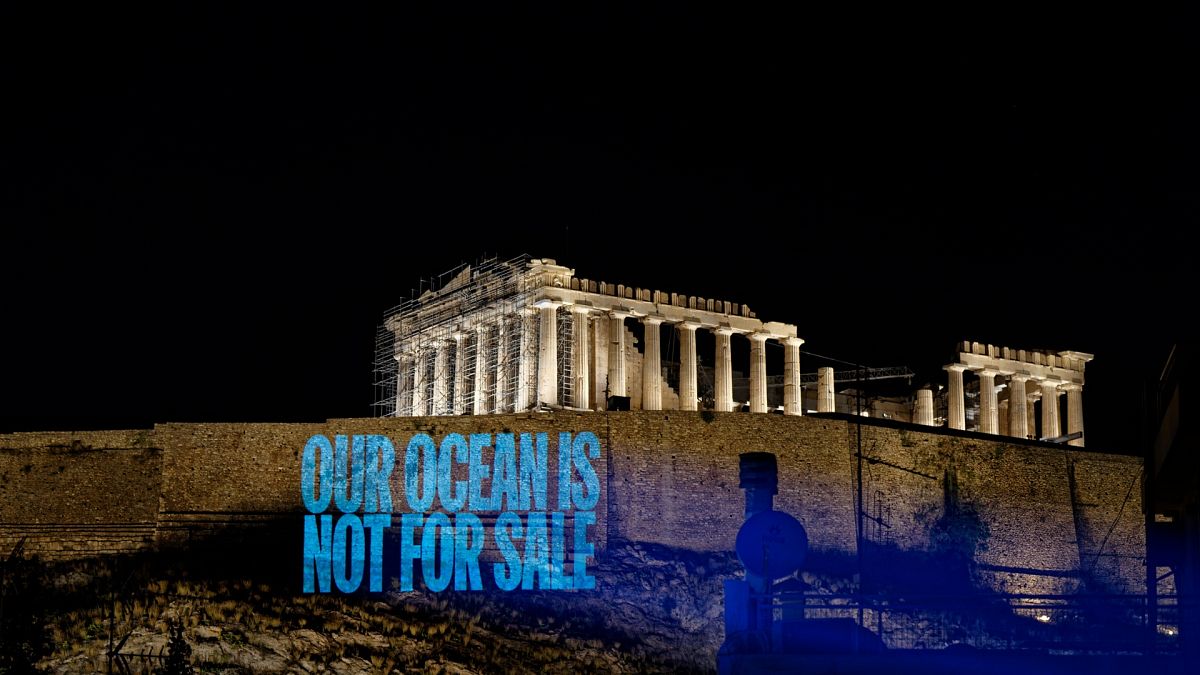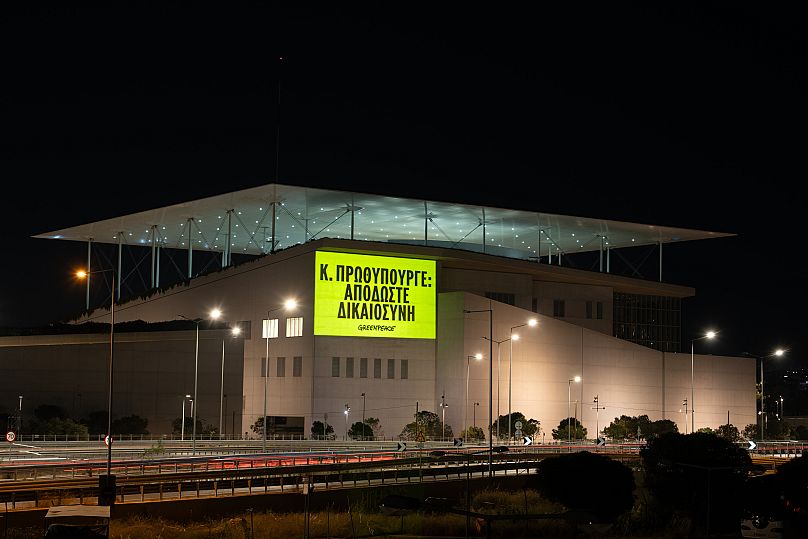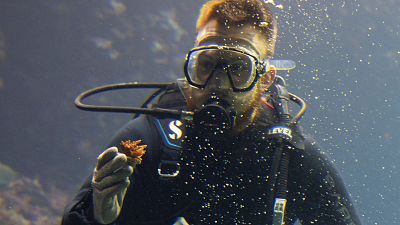More than 100 governments will meet in the Greek capital this week to discuss the challenges facing the world's oceans.
Governments aren’t doing enough to protect the world’s oceans and need to make major commitments at an important conference taking place in Athens, Greece, this week, according to Greenpeace.
Messages like “Our Ocean is Not for Sale”, “Ratify the Global Ocean Treaty” and “Stop Deep Sea Mining” were projected at sites around the city including the iconic Acropolis Hill and under the Temple of Poseidon, in Cape Sounio.
They were also projected onto the Stavros Niarchos Foundation Cultural Centre where governments will meet this week for a major conference on the challenges our oceans are facing.
The protest highlights what Greenpeace believes are the urgent measures governments need to take to protect oceans from “corporate greed including ensuring justice for coastal communities, stopping deep sea mining and ratifying the UN High Seas Treaty”.
What is the Our Oceans Conference and why does it matter?
The Our Ocean Conference will focus on sustainable tourism in coastal areas, tackling marine plastic and microplastic pollution, shipping, and specifically the green transition in the Mediterranean. More than 120 countries are set to take part.
The Greek government is planning to announce 20 commitments at the conference aimed at protecting the Greek seas. These measures include immediately establishing two marine parks in the country’s waters - one in the Aegean and one in the Ionian. Further ocean protection measures will be implemented by 2030.
At a press conference last week Greek Minister of Environment and Energy Theodoros Skylakakis said that the country “set an example” for others on ocean protection. Minister of Foreign Affairs Giorgos Gerapetritis said this was an “existential issue” for the country.
Not just a moment of ‘self congratulations and speeches’
There’s just one year to go until the 2025 UN Oceans Conference in Nice, France. By then, at least 60 countries will need to have ratified the UN High Seas Treaty - which will allow for a global approach to marine conservation - for it to come into force.
After more than 20 years of talks to figure out a legal framework for protecting oceans outside of country boundaries, so far just three nations - Palau, Chile and Belize - have officially submitted their ratification to the UN.
Greenpeace says if world leaders are serious about ocean protection, they need to ratify the High Seas Treaty.
“Despite the agreement of the UN High Seas Treaty in 2023, the Ocean remains under threat from industrial fishing, pollution, oil and gas drilling and the emerging deep sea mining industry,” says Nikos Charalambides, executive director of Greenpeace Greece.
“The Ocean needs this conference to not just be a moment of self congratulations and speeches but actual action and commitments to prevent this plunder.”
Charalambides adds that Greenpeace expects the more than 100 countries’ representatives attending in Athens to make bold commitments to protect the oceans.




